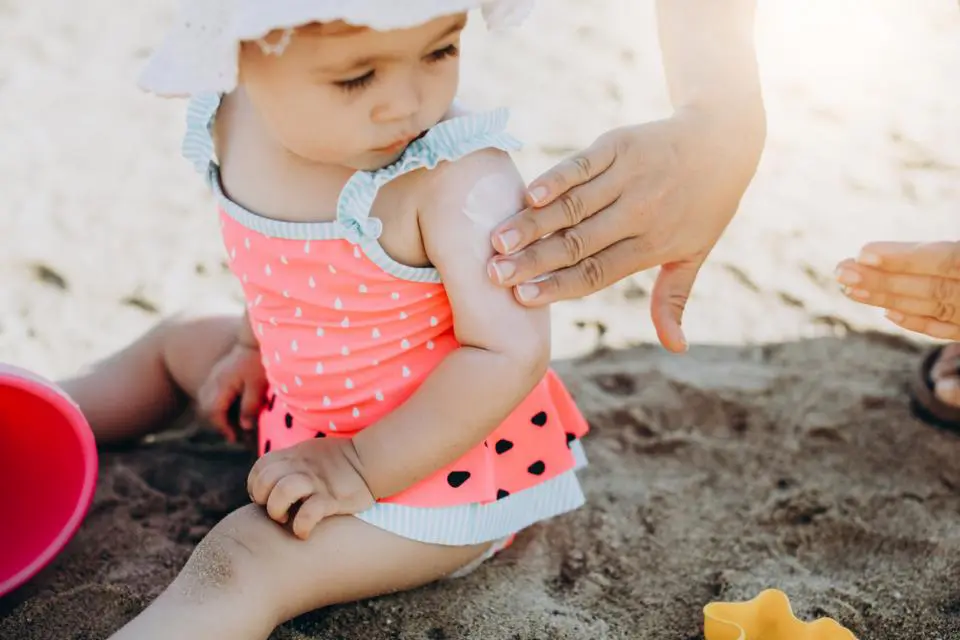Parents always think about the good of the child: we will take him to the sea, to breathe fresh air, to harden. But when the child is very small, especially in infancy, you run the risk of getting into a lot of trouble.
Young children are much easier to reheat than adults. Babies have a relatively larger body surface area, underdeveloped sweat glands and are very sensitive to environmental changes. Therefore, they are very easily overheated and dehydrated. Imagine being on the beach in hot weather with diapers that are always warm, how will you feel? On top of that, it is fashionable not to give water to infants, which further increases the risk of heat stroke.
Do not be deceived that the umbrella protects the child from the heat, the high temperature is high and in the shade. In the heat, we adults cool ourselves with fluids, sweat and regulate body temperature. The baby can’t and rashes, restlessness, fever, vomiting begin. Children up to 1 year have very delicate skin and should not be exposed to the sun, they burn easily, even with sun protection.
The smaller the child, the more likely he is to get sick at sea. His immune system is not strengthened, and there he meets many people who spread infections. In general, the sun is useful when used wisely, but in large doses it suppresses the immune system and children get sick in the heat.
Young children find it difficult to adapt and sudden changes in their diet have a bad effect on their health. So: a long trip, warmth, meeting many people, changing the regime, who needs to torture the child? I add the fact that it is difficult to find qualified medical care in a foreign place, doctors at sea are overworked, parents-enthusiasts with young children are in pain.
Insect bites are also more common near water bodies. In addition to the unpleasant rashes with itching and allergic reactions, mosquitoes also spread West Nile fever, for which we have no immunity. In addition to mosquitoes, ticks also attack to the max, due to the heavy rainfall they multiplied actively.
Outside the home, the quality of food is never safe, especially in hot weather. And stale food is a source of a lot of trouble – salmonella, dysentery, staphylococcal infections, etc. Which for a young child means a hospital and systems.
If you want your baby to be healthy and calm, do not confuse his regime and do not take him to sea. The recommendation of the World Pediatric Association is that for children up to 3 years of age the sea and long trips are not suitable. Which does not mean that you will necessarily have trouble, with reasonable parents the young child will feel great. But to be safe, wait for the children to grow up and when they are at least two years old, pack their bags and have a good time.







